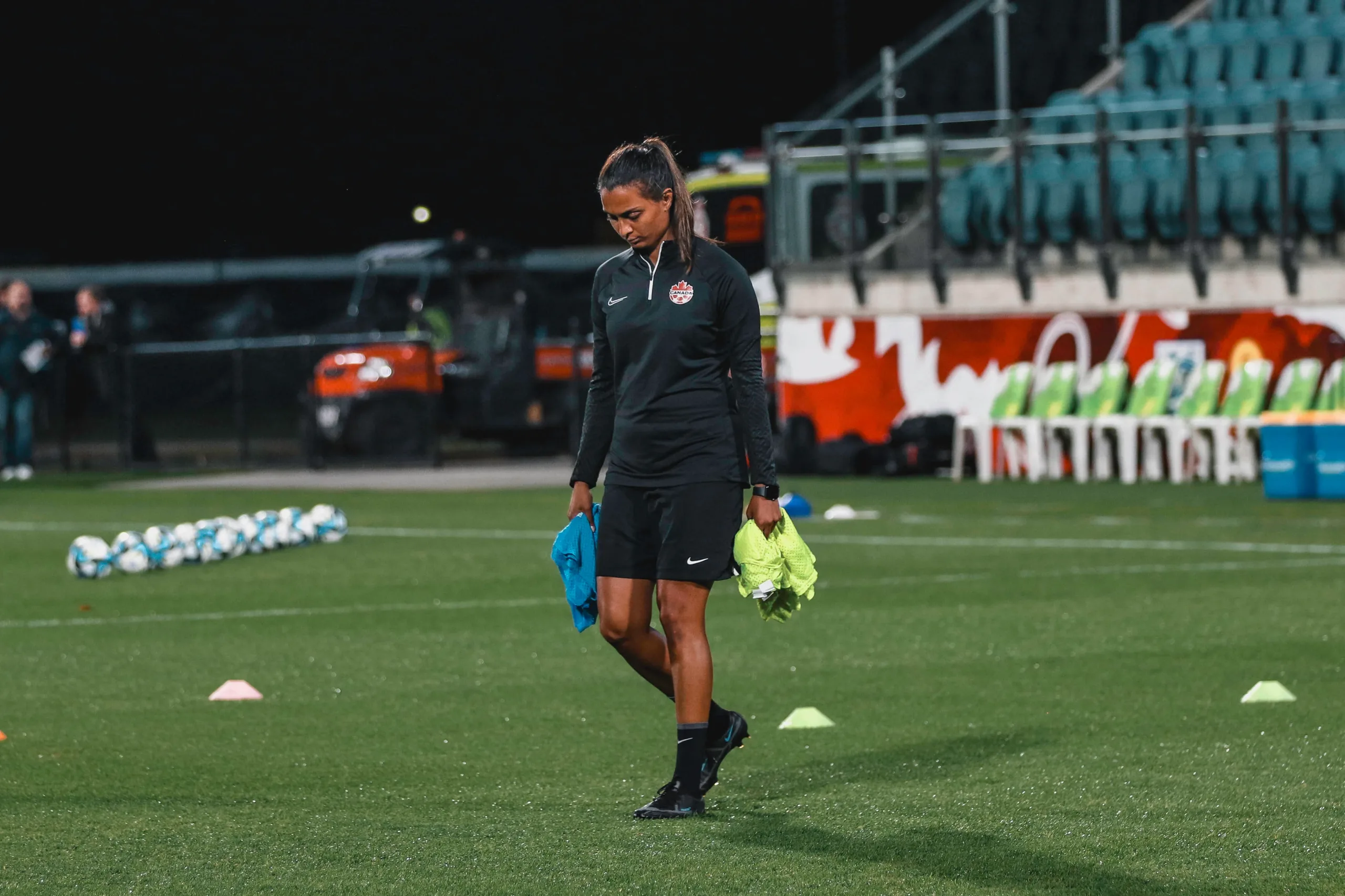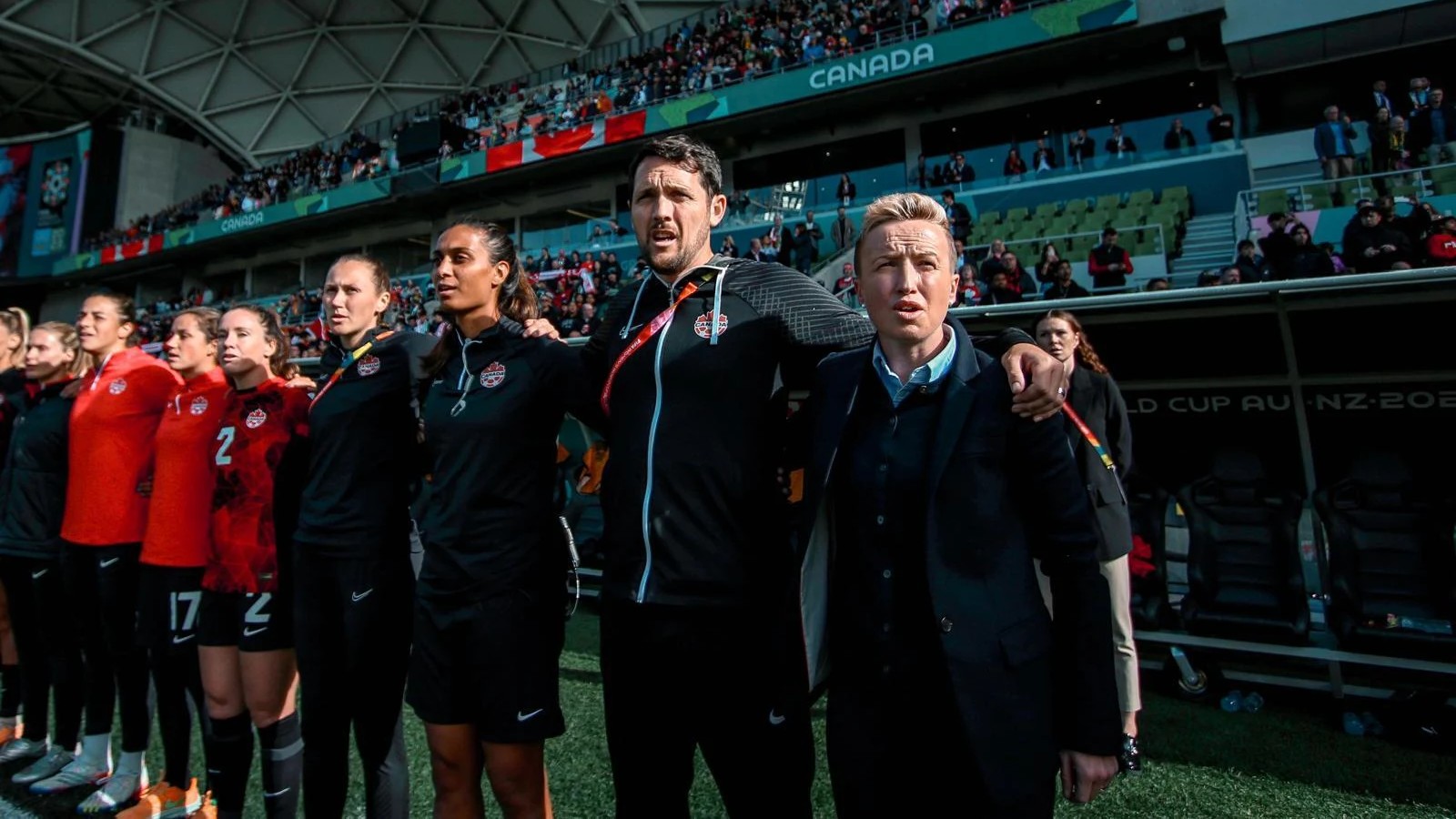You know how in soccer, sometimes the drama off the field hits harder than any match? Well, that’s exactly what happened with the Canada Soccer drone fiasco during the Paris Olympics. It wasn’t just about a team getting caught bending the rules—it turned into a full-blown crisis that messed with careers, reputations, and even mental health. And right in the middle of it all is Jasmine Mander, a former assistant coach who poured her heart out in a piece for The Players’ Tribune. Her story isn’t just juicy gossip; it’s a real, raw look at what happens when things go wrong in the sport we love. Plus, as someone who’s all about youth soccer here at sefasoccer.com, I can’t help but think about how this stuff trickles down to the kids—teaching them early that fair play isn’t optional, it’s everything.

photo source
From Dream Job to Total Nightmare: How It All Started
Picture this: Jasmine Mander, starting her coaching gig at just 19 while studying at UBC, climbs her way up to become the youngest staffer on Canada’s women’s national team by 25. She’s got that classic underdog vibe—her dad’s an immigrant from India who went from PE teacher to taxi driver, and he even coached her as a kid. Her brother’s out there as a physio for Team New Zealand. Family’s everything to her, and soccer? It’s her passion, especially working hands-on with players.
But then, bam—right before the Olympic opener against New Zealand, everything flips. Her buddy and analyst Joey Lombardi sends a panicked text: “Jas, I’m with the police.” Turns out, he’d flown a drone over New Zealand’s training session to snag some footage, breaking local laws they didn’t even know about. Suddenly, Mander’s in a meeting, getting grilled by cops, and the whole world’s calling it “spying.” Before she knows it, the Canadian Olympic Committee boots her and Lombardi home, no warning. Head coach Bev Priestman gets tangled up too. An investigation later digs up a “pattern” of this stuff, slapping penalties on 14 staffers—but only three names go public. Canada loses six points in qualifying, gets fined by FIFA, and the whole program’s under fire.
Sure, Mander owns up to it now: “We should’ve never tried to peek at an opponent’s practice. It was wrong.” But back then, she thought, “Hey, this must be how it works at the top.” Still, hindsight’s 20/20, right? And honestly, it makes you wonder about the culture in pro soccer—stuff that’s “normal” until it’s not.
The Real Hurt: Behind the Headlines and Hate
Okay, let’s get real—this wasn’t just about points and fines. For Mander, it felt like her world crumbled. She talks about being hustled through airports like some criminal, dodging reporters, and landing back home to a storm of online venom. Death threats, racist crap like “Go back to your country” or worse slurs, even people telling her to end it all. It got so bad she hid out, lost weight, had nightmares, and yeah, even hit a point where suicidal thoughts crept in (though she made it clear she wasn’t going there).
Thank goodness for her family—they were her rock. Parents checking in every night, her brother straight-up asking if she was okay in the darkest way. It took months, but by January, she started clawing back with little wins, like switching gyms or hearing from a parent whose kid looked up to her coaching. “This will follow me forever,” she says, and you can feel the weight of that. It’s a tough reminder that athletes and coaches are people first—fame doesn’t shield you from the pain.
Culture Over Chaos
What Mander revealed wasn’t just one bad decision—it was a reflection of how certain “win-at-all-costs” attitudes can quietly infiltrate sports environments.
Callout:
“Ethics aren’t optional extras in sports—they’re the game plan itself.”
In her essay, Mander calls out the culture that enabled such risks, arguing that accountability in soccer must go deeper than apologies. It must become part of the DNA—from grassroots to the national stage.
That’s where the connection to youth soccer becomes powerful.
What It Means for Soccer—and Why It Matters for the Kids
Shifting gears a bit, Mander doesn’t hold back on calling out Canada Soccer‘s “unacceptable culture” and lack of checks, as the CEO put it. Spying might be this dirty little secret in the pros, but when it blows up like this, it forces everyone to rethink. She steps up with accountability: “I screwed up. I should’ve spoken out.” And her apology to the players, fans, and all of Canada? It’s genuine, pointing out how just a few folks got thrown under the bus while others skated.
Now, here’s where it ties into what we do at sefasoccer.com with kids’ programs. Think about those little ones out on the field, learning to dribble and pass. Stories like this are gold for teaching moments—why cutting corners might feel tempting but always bites back. In youth soccer, we hammer home respect, ethics, and standing up when something feels off. It builds character that lasts way beyond the game. Mander’s still got love for Canada and the team, holding onto highs like that Olympic gold. It’s inspiring, showing kids that even after a fall, you can get up stronger.
In the end, Mander’s message hits home: “Your words matter—they can wreck someone in ways you can’t imagine.” So let’s spread more kindness in soccer, from the pros to the playgrounds. If you’re coaching or parenting young players, use this as a chat starter. And hey, keep the game beautiful—check out more tips and stories on sefasoccer.com.

A Message to Our Young Players
At SEFA, we believe stories like this should be told—not hidden. Because every kid who steps onto a field should know that soccer is more than competition. It’s about character, accountability, and the courage to be honest, even when it’s uncomfortable.
The next time you lace up your cleats, remember: how you play—and who you are—matters more than the score.
For the full scoop straight from Jasmine, check out her original piece here: What Actually Happened During the Canada Drone Scandal


